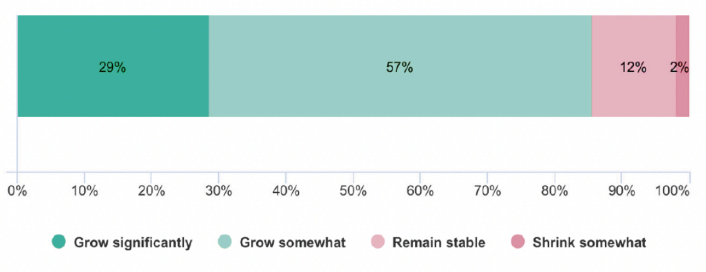Guest Blogger: Prof. Michel Kalika
President, Business Science Institute
Honorary Professor, University of Lyon
I have the privilege of regularly engaging with DBA students and professors. Through these interactions, I have witnessed firsthand the transformative impact of the DBA. It's rewarding to see how this programme serves as a bridge between two distinct worlds: the practical world of practitioners and the scholarly field of academics.
In recent years, the DBA market has gotten considerable attention, emerging as a pivotal force in the business education world. This emergence is often linked to several factors, including the maturity of the MBA market, a search for innovative business paradigms and knowledge, and the imperative to bridge the gap between academic research and practical managerial expertise.
The DBA is made for experienced managers to leverage their expertise, making it possible to do prestigious research with the support of international academic mentors. Some argue that a doctoral programme is not made for managers, but I argue that it not only rejuvenates their professional lives but also fosters personal and societal impact. Roughly half of all DBA research addresses Sustainable Development Goals (SDGs), and thereby contributing to global sustainability efforts.
Findings from a survey conducted by the Business Science Institute, in collaboration with EDBAC and EFMD, show an optimistic future for the DBA market. Responses from over a hundred deans of business schools and university officials indicate a projected growth for the DBA market.
Nonetheless, according to the study, there are some main obstacles to the market's development, including ambiguity surrounding the demarcation between DBA and PhD programmes, the pressures of professional life, corporate lack of awareness regarding DBA qualifications, and the inconsistent quality of DBA programmes.
Despite these challenges, survey respondents strongly recognize the distinctions between DBA and PhD programmes concerning their starting points, objectives, target audiences, focus on theory/practice, and ultimate outcomes. However, the term “Executive PhD” is perceived as a source of ambiguity, making it crucial for Business schools to effectively communicate the precise objectives of the DBA, and ensure a clear positioning that distinguishes it from a PhD programme.
Ensuring the accessibility of DBA programmes, while allowing professionals to pursue them without interrupting their careers, is a key focus. The impact of the Covid crisis, as well as the advancements in IT, has led to a narrowing of the gap between traditional in-person and remote DBA formats. A recent trend suggests a shift towards blended formats for DBA programmes, with 67% of survey respondents indicating a belief that future DBA deliveries will be blended. Moreover, survey results demonstrate a growing interest in DBA programmes among institutions, with 23% of those currently without such programmes actively considering their introduction in the near future. This indicates a broader recognition within the academic community of the value and relevance of DBA education.
The DBA provides the basis for publications, conferences, teaching and consultancy assignments. In conversations with DBA participants, I witness personal and professional growth, as they elevate their managerial experience to dive into research topics of critical and societal importance. There are too many success stories to mention, but one that comes to mind, when stressing the importance of the DBA in one's professional and personal journey, is Dr. Martin Lemelle, whose journey through the DBA programme led him to become the President of Grambling State University, proving the impact of DBA education. Both on career advancement and leadership opportunities. His insights, as outlined in his article 'The Keys to Success for Maintaining Change in U.S. Higher Education'2, offers valuable perspectives on organizational change and strategic planning within the higher education landscape. Moreover, and equally inspiring, are the dedicated faculty members who guide and mentor these executives through their DBA journey, creating an environment where real-world experience blending with academic learning.
These experiences reinforce my belief in the valuable role of the DBA in connecting theory and practice, fostering talent, and instigating positive change in the business world. Looking ahead, I am confident that the DBA will continue to play a pivotal role in shaping the future of business education and management practice.
https://en.dba-knowledge.com/post/the-keys-to-success-for-maintaining-change-in-u-s-higher-education
*The Business Science Institute is an academic international organization with an Amba-accredited DBA for +10 years in English, French, German, Spanish, F2F, and online with 200+ DBA students, 170+ alumni coming from 60 countries, a network of 150+ faculty and 55+ books published.



